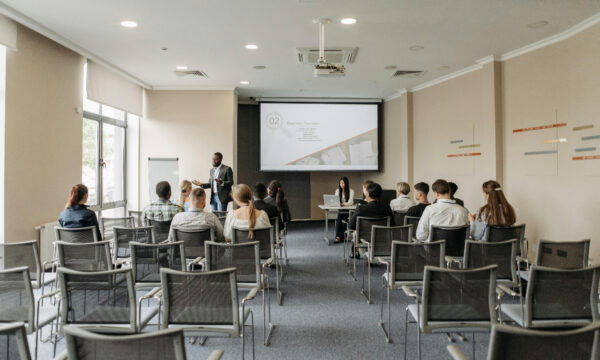Digital technologies and the evolution of human interaction

Digital technologies, with the strong support of social media, have changed the way the world communicates in a very short period of time. For centuries, letters were essentially the only means of long-distance communication; even relatively recently, phone calls required time and money. In the 21st century, most people have completely forgotten how much it once took to communicate with loved ones living across the pond! But was that change for good or for bad? Expert in all things online digital, Aleksandra Maj (read her bio here), gives her perspective here on the new world of online communication.
Maj is by no means old but has been around long enough to remember how things used to be: “Phone calls with distant relatives used to cost a lot of money, more than young generations can imagine. My mother was always giving us non-verbal hints to wrap it up and hang up, in case we were the ones making the call,” she remembers fondly. Now, she says things are different. One can make contact with almost anyone or anything via the Internet – from making remote friends playing online games (literally anywhere in the world, including the kasyna online in Poland), chatting with coworkers living across the globe, or showing friends a new apartment, today it costs nothing but a few minutes of time.
Digital communities united
Maj says the digitalisation and accessibility of communication became yet more apparent during the recent Covid-19 pandemic. In her opinion, people were secluded and lonesome, but not nearly as much as they would have been if the pandemic happened 20 or 30 years ago.
“Do you remember watching people singing and dancing on their balconies? Or fitness instructors showing up in front of people’s houses to motivate them to work out? You were able to witness it firsthand because of social media. Statista says active social media population makes around 4.2 billion people, and counting – a number that can’t be overlooked,” she says.
As one of the main advantages of social media, she mentions specialised digital communities that make a difference for many. People who share the same interests can communicate, regardless of their race, location, physical and mental disadvantages, or social status. Many individuals have found their tribes thanks to online communication.
“The best example for this are so-called mommy communities. In many developed countries, women lose touch with the outside world, both literally and figuratively. A woman is left alone with her baby, without any help, hormonal and confused, and everyone has high expectations. Mommy groups serve as a safety net, a place to chat, ask for advice or simply let your heart out when you feel overwhelmed,” explains Maj, adding, “It takes a village to raise a child, and in the 21st century the village is digital.”
Dangers of digital communication
While most Internet users take advantage of modern communication systems to stay in touch with their friends, Maj warns it’s not all unicorns and rainbows. “Digital communication has made us more carefree, and we no longer focus on the interpersonal aspect of it. We reply in emojis while keeping a straight face, we no longer feel remorse when we are late as we can always let the other person know. The digital technologies have increased the number of messages we exchange, but I am not sure about their quality,” she notes.
Another important aspect of modern interaction is the desire to represent oneself better than the reality. Maj remembers how in the early 2010s, Facebook was full of random photos from nights out, where people looked like they were having fun. Today, behind every photo is an elaborate (and oftentimes frustrating) photoshoot, plus hour of editing: “We no longer enjoy little moments in real life. We try to polish them as much as possible for our audience, even if it’s just our friends and grandma.”
Trolls, bullies and other dangers
According to the online expert, a lack of empathy and being more self-centred are not the only dangers of online communication and digital relationships. She also mentions trolls and online bullies, who do their best to trash-talk about others, all behind a safe veil of anonymity. Unless one takes legal action, it is impossible to avoid being online and therefore a potential target of the Internet’s know-it-alls and bullies.
“Another serious danger is the fact you never know who you are talking to. This is especially true for children and teens who still don’t understand how deceivable they are, and how many people want to take advantage of their naïveté,” explains the specialist, without any sugar-coating.
So it’s worth considering using that pinging messenger to invite a friend for a walk or a cup of delicious coffee, or to organise a real meeting in the community. Digital communication is fine, but only as long as not every aspect of life is centred around it.
The editorial unit
























Facebook
Twitter
Instagram
YouTube
RSS